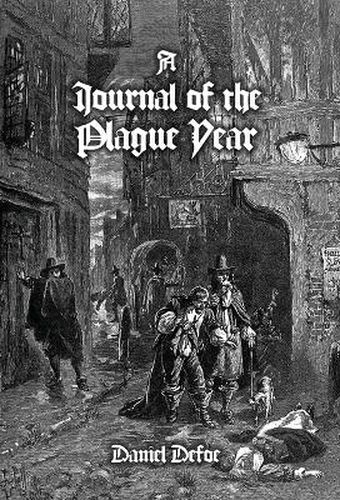Readings Newsletter
Become a Readings Member to make your shopping experience even easier.
Sign in or sign up for free!
You’re not far away from qualifying for FREE standard shipping within Australia
You’ve qualified for FREE standard shipping within Australia
The cart is loading…






This title is printed to order. This book may have been self-published. If so, we cannot guarantee the quality of the content. In the main most books will have gone through the editing process however some may not. We therefore suggest that you be aware of this before ordering this book. If in doubt check either the author or publisher’s details as we are unable to accept any returns unless they are faulty. Please contact us if you have any questions.
In November 1664, rumours began winding their way through crowded, filthy, stinking alleyways about the death of two Frenchmen from the Plague at Long Acre. The plague had raged in Amsterdam with incredible violence the year before, as some still remembered, and it appeared to have its made to London by boat. At first, the family with whom the Frenchmen were staying, and then those who had caught the invisible contagion, attempted to conceal it, but soon enough the deaths began to mount, and the cat was out of the bag. Along with the disgusting buboes, the dead carts, and the secret mass graves, people's fervid imagination snowballed too, conjuring all manner of horrors-about the symptoms, about the disease, about pestilential houses filled with rotting corpses-sweeping the city with a foul wave of paranoia and terror. Who had it? Was it in the air? Was it divine punishment? Whither could one flee? Defoe, who lived through these events during infancy, and apparently basing his narrative on his uncle's diary, plus a variety documents, tells the story in the manner of a witness account. Its frightening immediacy makes it far superior, and vastly more engrossing, than Hodges' formal, medically-focused volume on the same subject. In the end, the plague claimed over 68,000 lives, about a quarter of the city's population. Sociologically and in terms of the official response, astonishing, sometimes tragicomical parallels, emerge in the mind of the modern reader, between what became known as the Great Plague of London of 1665, and the more recent coronavirus pandemic. There are occasions for eyerolls, anger, laugher, and contempt herein. It seems that although we know history, we are condemned to repeat it anyway.
$9.00 standard shipping within Australia
FREE standard shipping within Australia for orders over $100.00
Express & International shipping calculated at checkout
This title is printed to order. This book may have been self-published. If so, we cannot guarantee the quality of the content. In the main most books will have gone through the editing process however some may not. We therefore suggest that you be aware of this before ordering this book. If in doubt check either the author or publisher’s details as we are unable to accept any returns unless they are faulty. Please contact us if you have any questions.
In November 1664, rumours began winding their way through crowded, filthy, stinking alleyways about the death of two Frenchmen from the Plague at Long Acre. The plague had raged in Amsterdam with incredible violence the year before, as some still remembered, and it appeared to have its made to London by boat. At first, the family with whom the Frenchmen were staying, and then those who had caught the invisible contagion, attempted to conceal it, but soon enough the deaths began to mount, and the cat was out of the bag. Along with the disgusting buboes, the dead carts, and the secret mass graves, people's fervid imagination snowballed too, conjuring all manner of horrors-about the symptoms, about the disease, about pestilential houses filled with rotting corpses-sweeping the city with a foul wave of paranoia and terror. Who had it? Was it in the air? Was it divine punishment? Whither could one flee? Defoe, who lived through these events during infancy, and apparently basing his narrative on his uncle's diary, plus a variety documents, tells the story in the manner of a witness account. Its frightening immediacy makes it far superior, and vastly more engrossing, than Hodges' formal, medically-focused volume on the same subject. In the end, the plague claimed over 68,000 lives, about a quarter of the city's population. Sociologically and in terms of the official response, astonishing, sometimes tragicomical parallels, emerge in the mind of the modern reader, between what became known as the Great Plague of London of 1665, and the more recent coronavirus pandemic. There are occasions for eyerolls, anger, laugher, and contempt herein. It seems that although we know history, we are condemned to repeat it anyway.